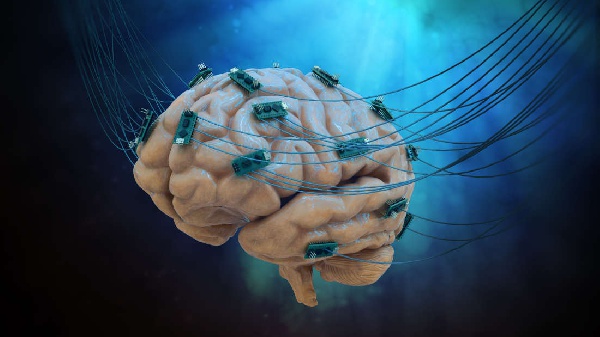A team of researchers at Wits University in Johannesburg, South Africa have made a major breakthrough in the field of biomedical engineering.
They have linked a brain directly to the internet and this project could help fuel the next steps in machine learning and brain-computer interfaces.
According to a release available to the Ghana News Agency, published on Medical Express, for the first time ever, researchers have devised a way of connecting the human brain to the internet in real time. It’s been dubbed the “Brainternet” project, and it essentially turns the brain “…into an Internet of Things (IoT) node on the World Wide Web.”
The project works by taking brainwave EEG signals gathered by an Emotiv EEG device connected to the user’s head. The signals are then transmitted to a low cost Raspberry Pi computer, which live streams the data to an application programming interface and displays the data on an open website where anyone can view the activity.
Adam Pantanowitz, a lecturer in the Wits School of Electrical and Information Engineering and the project’s supervisor, said: “Brainternet is a new frontier in brain-computer interface systems. There is a lack of easily understood data about how human brain works and process information.
“Brainternet seeks to simplify a person’s understanding of their own brain and the brains of others. It does this through continuous monitoring of brain activity as well as enabling some interactivity.”
Pantanowitz said this is just the beginning of the possibilities of the project.
He added that the team was now aiming to allow for a more interactive experience between the user and their brain. Some of this functionality has already been built into the site, but it is very narrow — limited to stimulus such as arm movement.
“Brainternet can be further improved to classify recordings through a smart phone app that will provide data for a machine-learning algorithm. In future, there could be information transferred in both directions – inputs and outputs to the brain,” Pantanowitz said.
Future applications for this project could lead to some very exciting breakthroughs in machine learning and brain-computer interfaces like Elon Musk’s Neural Lace and Bryan Johnson’s Kernel.
Data collected from this project could lead to a better understanding of how our minds work and how we can take advantage of that knowledge to augment our brain power.
Source: GhanaWeb














